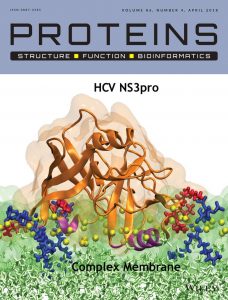 A researcher has retracted two 2014 papers, after discovering they had not gone through the proper approval process before being submitted.
A researcher has retracted two 2014 papers, after discovering they had not gone through the proper approval process before being submitted.
The papers were part of a collaboration funded by the U.S. National Institutes of Health, which focused on solving protein structures. Adam Godzik, the senior author, told Retraction Watch that all papers had to be approved by a special committee before being submitted to a journal. Given the scale of the collaboration, the committee for the Joint Center for Structural Genomics (JCSG) would assess whether researchers who had made a previous contribution to the work should be added as authors.
Proteins: Structure, Function, and Bioinformatics retracted both papers after Godzik informed the editor in August 2014 that neither article had undergone the required review before being submitted to the journal. Although Wiley agreed to the retractions in an email to Godzik in September 2014, the papers were only pulled in January—more than three years later.
Godzik, director of the Bioinformatics and Structural Biology Program at Sanford Burnham Prebys Medical Discovery Institute in San Diego, and first author William Hwang, a postdoc in Godzik’s lab at the time, both said that the retractions had nothing to do with the merits of the papers themselves.
However, the authors’ accounts of what happened with the submission differ. Hwang said he did not know about the JCSG protocol, while Godzik said Hwang was aware but submitted the papers anyway.
Hwang, who now works at a biotech company in San Diego, told us that both he and Godzik believed they could submit and publish the papers themselves, since they were analyzing protein structures that had been added to a public database:
If I had known the collaboration had this internal protocol, I would have gone through the proper channels first. But I wasn’t aware of that before submitting the papers for publication.
After one of the papers was published in early August 2014, the project’s program coordinator informed Godzik that people involved in an earlier phase of the protein work wanted their name on the paper. The coordinator asked Godzik to retract it, Hwang said.
But Godzik provided a different version of events. He claims that Hwang knew the proper submission protocol:
While I do not recall explicitly explaining this policy to him, it was a common knowledge in the group, we discussed it often at group meetings and there was a long trail of papers following this policy.
Godzik also said he did not give Hwang permission to submit the papers, but noted:
It is possible that at some point I made a conditional statement like “we could submit it if we get a clearance from the steering committee” and he (mis)understood it as a simple, unconditional OK.
On Aug. 28, 2014, Godzik emailed Bertrand Garcia-Moreno, editor-in-chief of Proteins, to request the retraction of the August 2014 paper published in the journal earlier that month and to hold off publishing two other papers that Hwang had submitted to Proteins. But the second paper had already been slated for publication and was published on Sept.1, 2014, Godzik said. The papers collectively have been cited five times, according to Clarivate Analytics’ Web of Science.
We’ve contacted Garcia-Moreno and Wiley to ask why the retractions took more than three years. Melissa Asaro, an editor at Wiley, explained:
Due to staff changes within Wiley, these retractions were delayed.
Hwang told us he was “very upset” about the retractions:
The retractions were about bureaucracy, not science.
Like Retraction Watch? You can make a tax-deductible contribution to support our growth, follow us on Twitter, like us on Facebook, add us to your RSS reader, sign up for an email every time there’s a new post (look for the “follow” button at the lower right part of your screen), or subscribe to our daily digest. If you find a retraction that’s not in our database, you can let us know here. For comments or feedback, email us at [email protected].